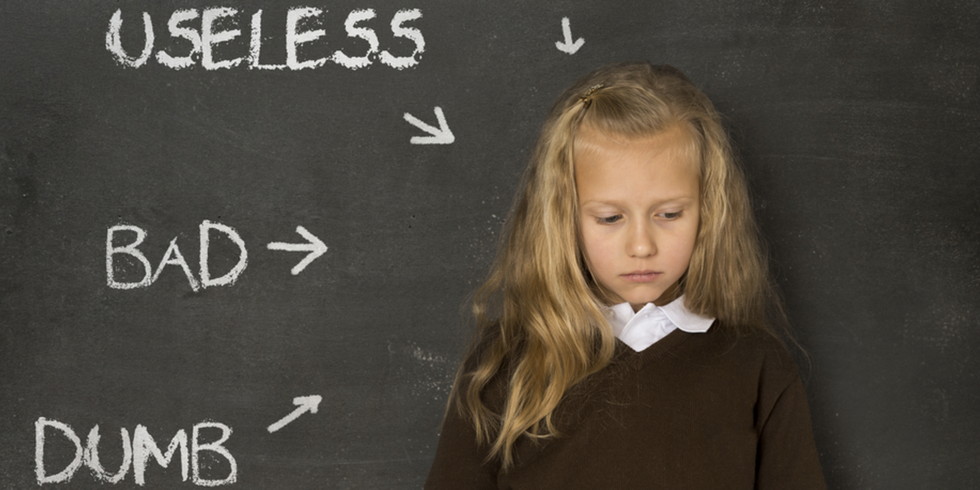If you're reading this in a public place right now, look around. How many people are on their phones or computers? If you're alone, how many hours have you spent today on social media?
The internet is huge now, as if I have to tell you that. Back when our parents were growing up, and their parents were growing up, they didn’t have to worry about comparing themselves to the rest of the world, because they couldn’t. It’s not like someone from across the pacific was sending them photos of their summer vacation, asking for a like or comments. Whatever they grew up around was what pretty much they had to compare themselves to, which only really outwardly connected them to magazines, newspapers, and television. But now, you can discover people all over the world who you will never see, normal people, who are all trying just as desperately to advertise themselves as the person they WANT you to see, the one you’re supposed to want to be or be with.
I’ve noticed a rising attitude among teens and young adults online; a running narrative of “I’m too ugly, “I’m stupid,” “I’m not good enough,” and it occurred to me, we are living in the age of self deprecation.
The definition of “self-deprecation” is “to make oneself or the things one does seem unimportant.” The humor we as a generation have come to build is largely based on this idea of hating ourselves and the things we’ve done. And I know what I’m talking about, because I’m one of the people participating in this “age.” Scroll through my twitter and you’ll find any amount of tweets that are “negative” in principle, some of which I actually started to believe.
It’s interesting, because if you continue to say negative things, despite initially joking, eventually, you’re actually going to believe it.
A study published at Case Western Reserve University titled “The Age of Anxiety?” examined the rise in mental health problems among young people, eventually concluding that the decrease in social connection and high environmental risk led to more depression and anxiety. Much of this came with the rise of the internet, and continued as the quality of life got better. Globally, things became comparatively peaceful, but personally, things got worse. The study determined, "our greater autonomy may lead to increased challenges and excitement, but it also leads to greater isolation from others, more threats to our bodies and minds, and thus higher levels of anxiety.”
So we started to laugh at ourselves, and it worked to generally create a funny, and somewhat relatable conversation. It spread to more well known people, and the internet began to boom with self deprecating humor, which became a sort of social status marker. Karen Leland, president of the Sterling Marketing Group, stated “The humility of being able to be authentically self-deprecating helps build our personal brand in a positive way. However, the opposite is also true.” Basically, as a famous person, you could start to look down on yourself as an advantage, a reminder to the public that you can still be humble and normal, helping build that “personal brand.” But for the majority that weren’t famous, they were only hurting themselves.
In an interview with Complex News, rapper Logic stated “We live in a weird world where peace love and positivity, ‘oh he’s whack,’” [3:01 - 3:08]. And he's right: it's easy to be negative but it's hard to be positive, and those who are positive are more looked down upon than others. Adapting this attitude will later come back to create narratives that not only hurt you, but other people.
Imagine you walk into an honors or AP class, it’s the first day of school. You sit near a girl who immediately says “Well, I’m about to fail this class!” You laugh, because you feel similarly concerned. Now, imagine that everyday, she says this or something like this. You’d start to hate her right? Self-deprecation will inevitably end in mutual dislike among peers, creating negative, fixed mindsets that are hard to mend.
We’ve made it normal, and it is. It’s normal to criticize yourself, to make a joke out of your insecurities. The problem starts when it becomes an automatic response, and begins to deteriorate your mental health. I’m calling for a change of mindset, one that looks at imperfections laughingly and actively fixes them, instead of making them worse by building yourself on them. There’s no “right” time to send this message, it won’t be a quick change and it probably won’t be a complete one. But social media is the world right now, and will probably stay that way for a while, and I believe it’s time to, as Donna Karan once said, “Delete the Negative, accentuate the positive!”






 The minimum wage is not a living wage.
StableDiffusion
The minimum wage is not a living wage.
StableDiffusion
 influential nations
StableDiffusion
influential nations
StableDiffusion







